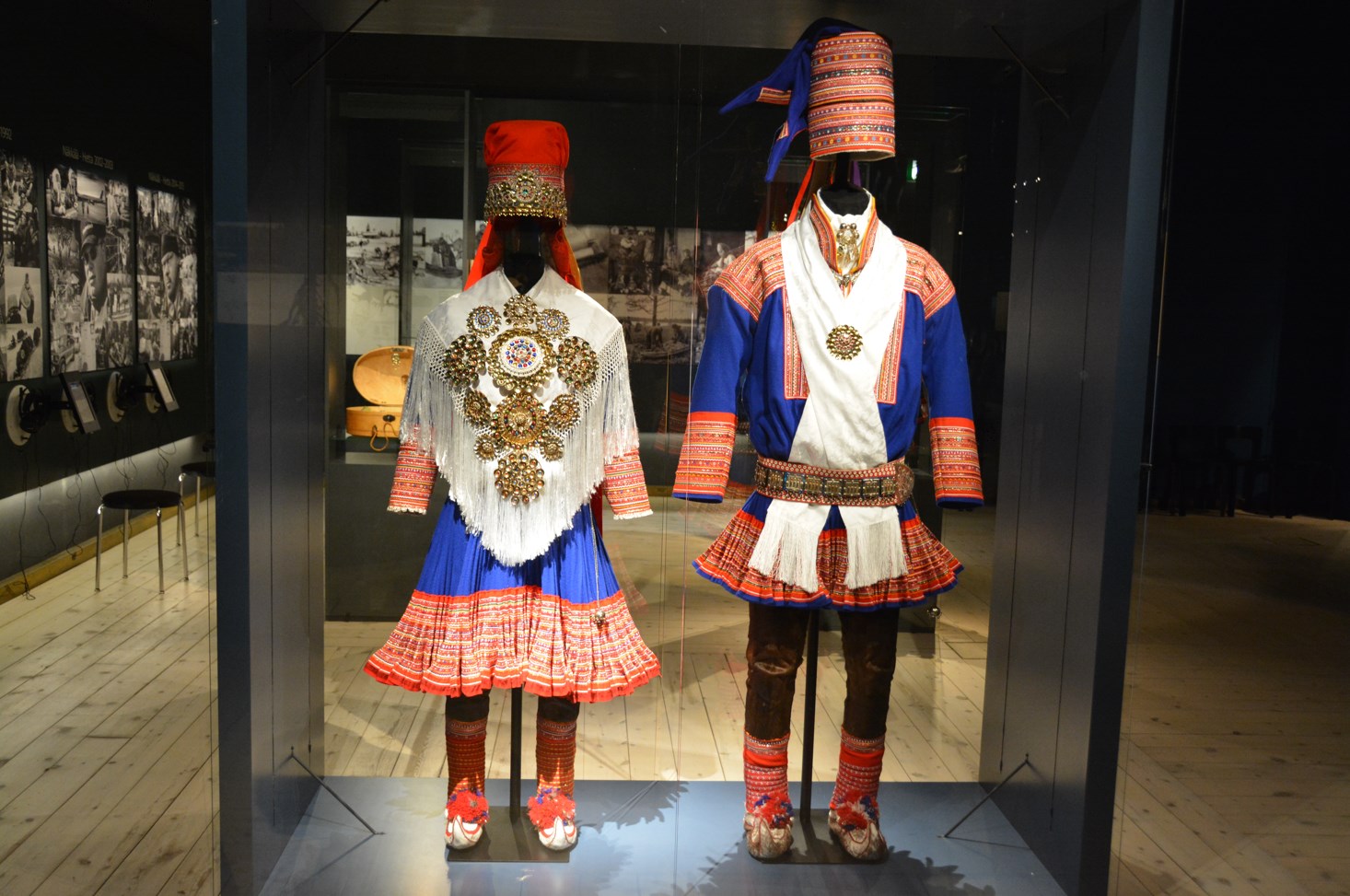THE HAIRY GIRAFFE… IN UZBEKISTAN
After two weeks in Uzbekistan, it’s time to reflect. How did we experience this journey? What were our joys, disappointments, questions, doubts, and discoveries? This is not merely an assessment of a country but rather of a trip—how we perceived it individually and subjectively.
 We are François and Benjamin, Canadian and French giraffe hairstylists and travel enthusiasts. On this blog, discover our travels, tips, moods, and everything you need to become a giraffe hairstylist and embark on travelling the world. An honest blog with photos guaranteed 100% unfiltered and untouched. |
Benjamin’s Travel Reflections
From France’s perspective, Uzbekistan is a nearly unknown country, buried within memories of the USSR, where the ancient Silk Roads seemingly gave way to endless deserts. Once at the center of the world, the Central Asian countries generally don’t evoke much for Westerners. Vast stretches of steppes flown over en route to more touristic countries. However, it would be naive to think that Uzbekistan’s incredible sites are waiting in vain: the country welcomes over six million tourists annually. While few Westerners dream of Uzbekistan, tourists from neighboring countries flock there, well aware of the treasures it holds.
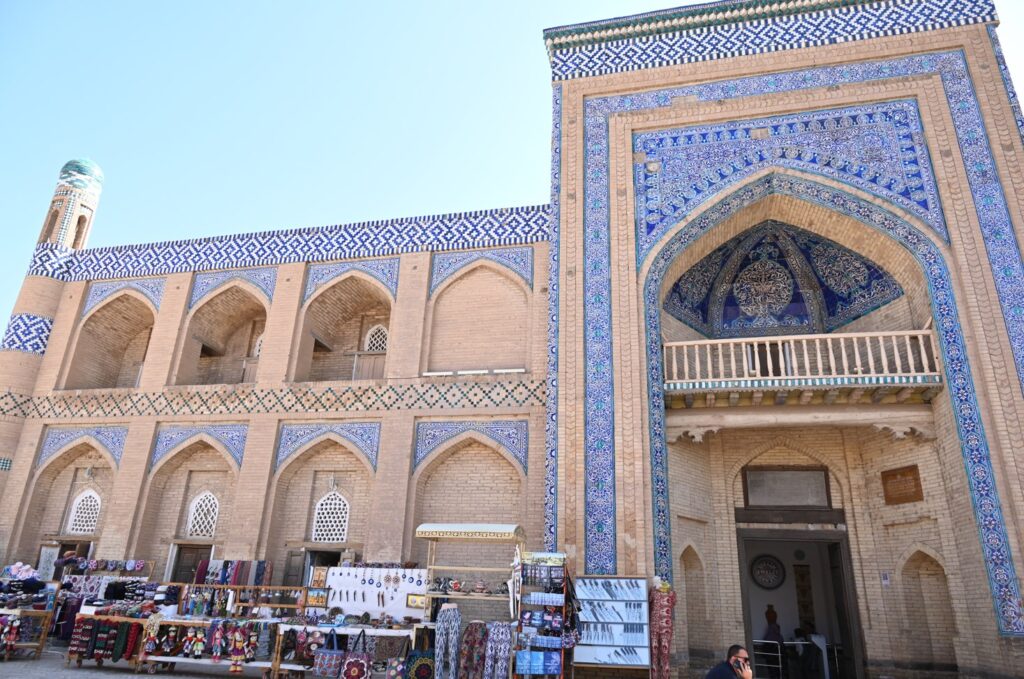
Visiting Uzbekistan compels us to shift our perspective, to change the viewpoint of our geographical maps. While we grew up with the notion that Europe was at the center of the world, nestled between the Americas and Asia, a journey to Uzbekistan urges us to understand that the center of the world was once here. It was here that commercial exchanges occurred, here where the boundary between East and West lay, here where ideas and religions journeyed for centuries, and here where wealth not only passed through but also settled.
These currents shaped Uzbekistan. The only country in the world (alongside Liechtenstein) to be doubly landlocked—surrounded by countries themselves lacking access to the sea—Uzbekistan has long been at the heart of the world. This position has crafted a country influenced by diverse and sometimes conflicting factors.
In Uzbekistan, the tourist rediscovers the fragrant spices that still intoxicate the alleys of the ancient marketplaces in Samarkand, Bukhara, and Khiva. They marvel at the treasures of Islamic architecture, they are surprised by the practice of Islam marked by the anti-religious policies of the USSR, they question the coexistence of Cyrillic and Latin alphabets for the same language, they trace the footsteps of great conquerors like Alexander the Great and Genghis Khan, they admire the ruins of abandoned fortresses in the middle of the desert, and they discover, with a sense of powerlessness, the consequences of Khrushchev’s irrigation policies that led to the irreversible drying of the Aral Sea, once the fourth largest lake in the world, now a sadly desertified area.
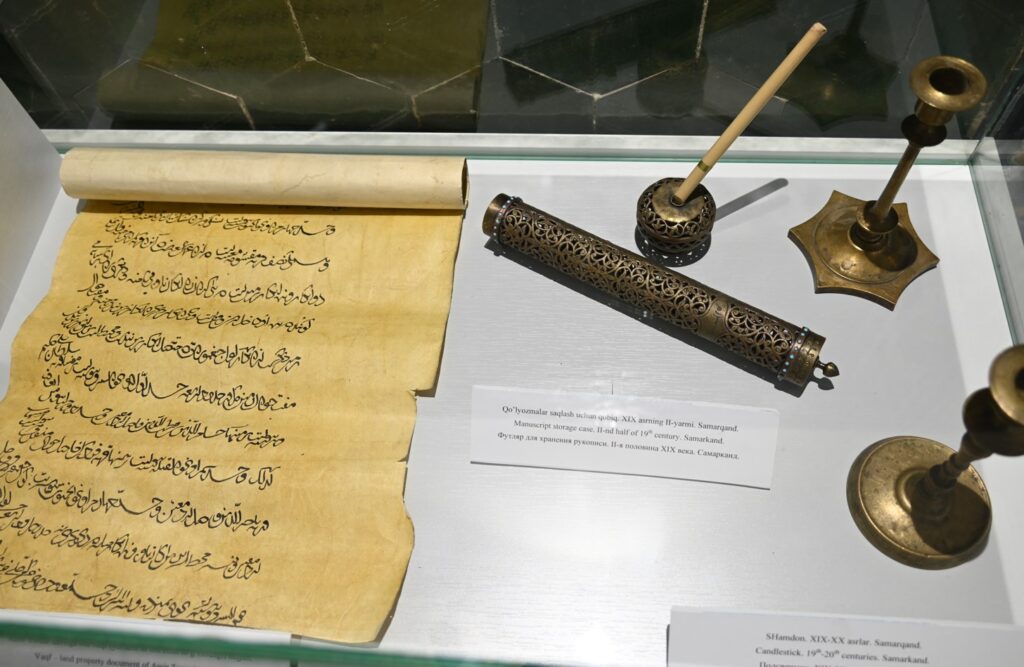
Traveling in Uzbekistan also involves navigating through different eras—a glorious ancient past that has bequeathed mosques and madrasas reminiscent of tales from One Thousand and One Nights, and a recent endured past that has left behind a dried sea and modernist Soviet buildings (and, let’s admit it, a rather aesthetically unpleasing capital, Tashkent).
The country remained almost closed to tourism for a long time, and it has significantly opened up since 2016. It has even become particularly easy to visit Uzbekistan: no visa required, no invitation letter needed (Soviet bureaucracy is a thing of the past), and direct flights from Paris to Tashkent and Urgench (Khiva).
However, this opening to tourism sometimes comes at the expense of the Uzbek people: numerous individuals have been displaced to make way for tourist hotels in the old town of Khiva, and a literal wall separates the tourist streets of Samarkand from residential neighborhoods. So, while the mosques and madrasas of Bukhara and Samarkand dazzle and offer endless opportunities for THE Instagram photo—blue skies, pristine ground, renovated buildings, everything neatly arranged and beautiful—what the photo of the Registan doesn’t convey is the feeling of only seeing the facade.
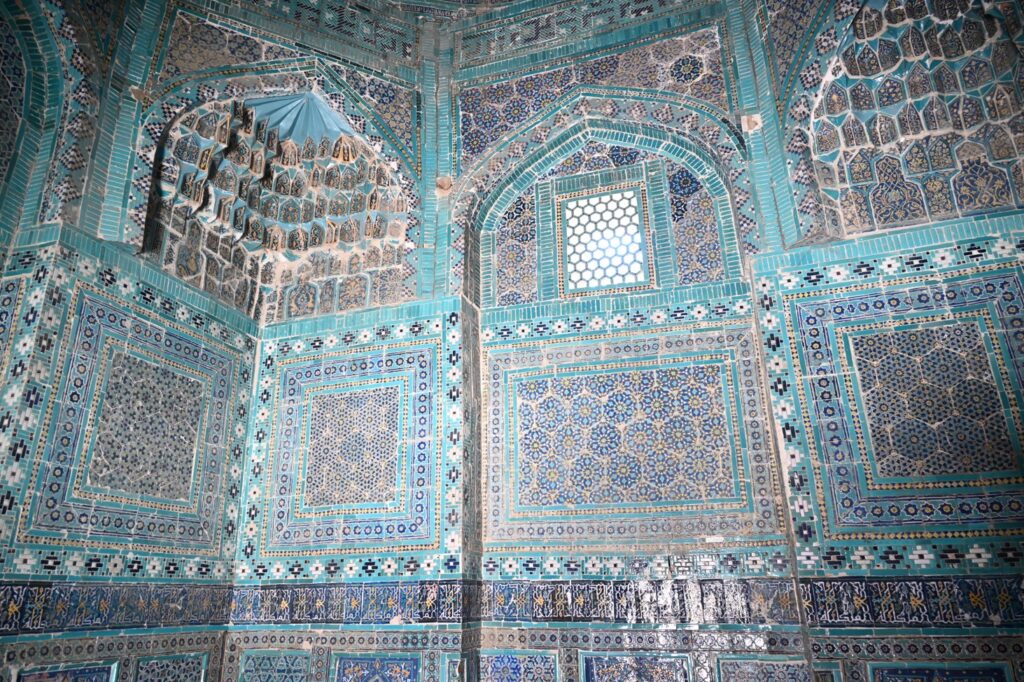
Perhaps I might come across as critical, but I often found myself in front of some of the world’s most beautiful buildings yet feeling bored. Not because of their beauty, but because frequently, the interiors were just a succession of souvenir and craft vendors, lacking the fervor or spiritual life one might find in Buddhist temples.
Yes, one can imagine being at the heart of the Silk Road, but after a few sites, the stalls start to blend and repeat endlessly… And while one can be amazed for an hour in front of a building, one still needs to figure out what to do for the rest of the day…
A few sites prove me wrong: the mausoleums of Shah-i-Zinda and Guri Amir, and of course, Khiva in its entirety (my favorite part of the trip) will remain etched in my memory as exceptional places where I could have spent days wandering. But once you step away, even just one street over, the order and cleanliness reminiscent of tourism sites give way to a completely different atmosphere, and sometimes, there’s a sensation (especially in Samarkand) of being in the backstage of an amusement park.
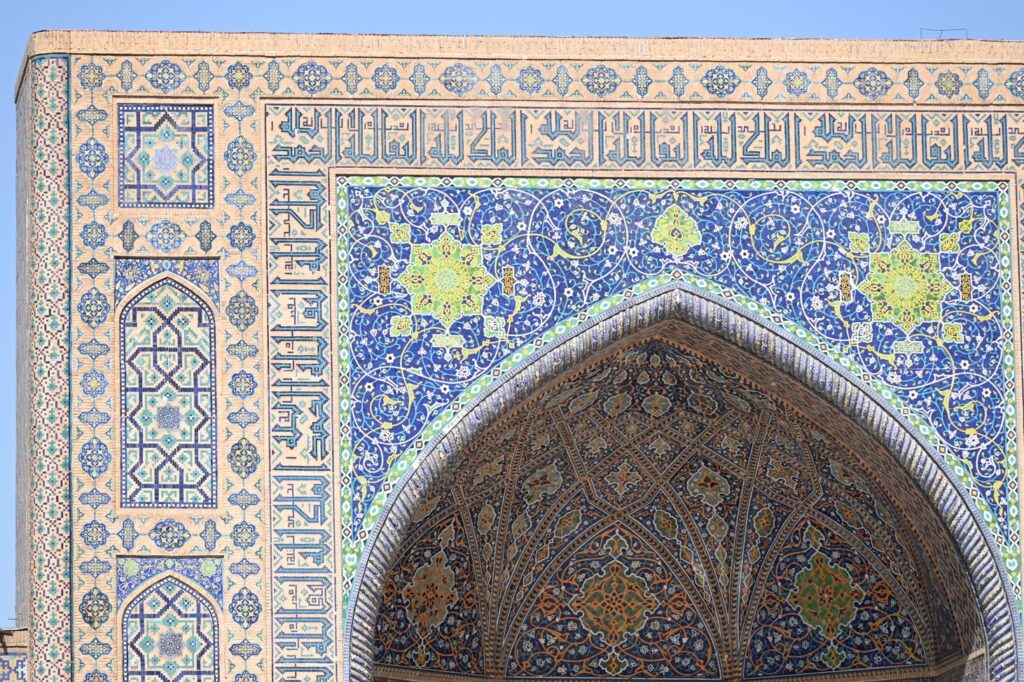
Funny enough, when visiting Uzbekistan, does one feel at the center of the world? Perhaps not entirely. But undoubtedly, at the crossroads of several worlds. It’s a unique opportunity to witness the most diverse influences, to admire depictions of fantastical creatures on Islamic buildings, to witness humanity’s excesses (how can one not be speechless at the cruel poetry of the abandoned boats after the drying of the Aral Sea?) and to imagine oneself centuries back, in the heart of those famous Silk Roads that China dreams of recreating today to further increase its influence in this part of the world.
So, I promise, the next time we fly over Central Asia, we’ll forget steppes and deserts and instead remember the omnipresent blue, the mosaics, the gold, and the dazzling facades.
Check out François’ Travel Reflections:
Check out all our other articles on Uzbekistan (souvenirs to bring back, itinerary…):



